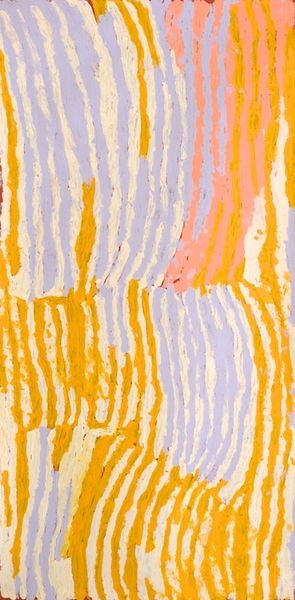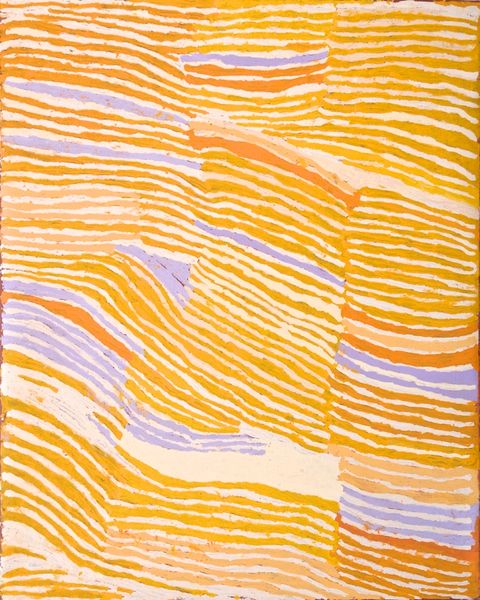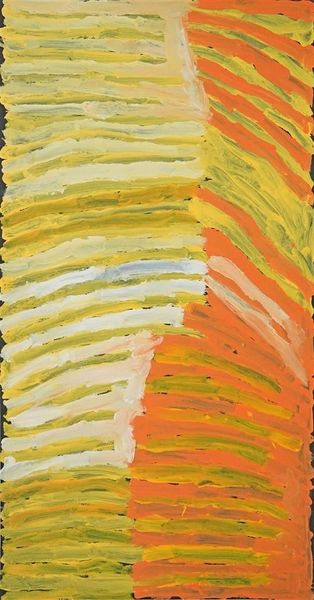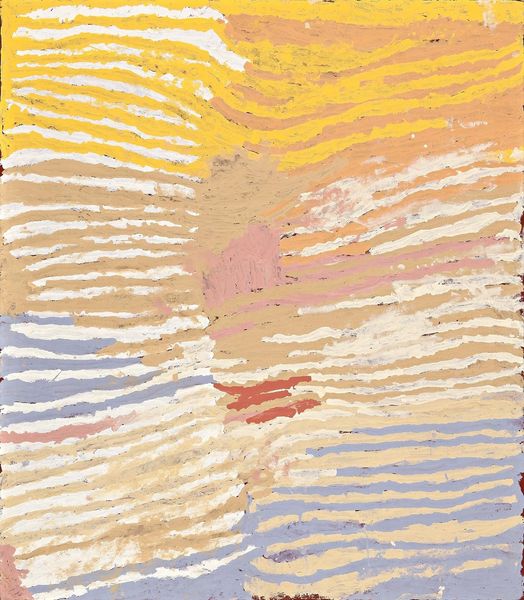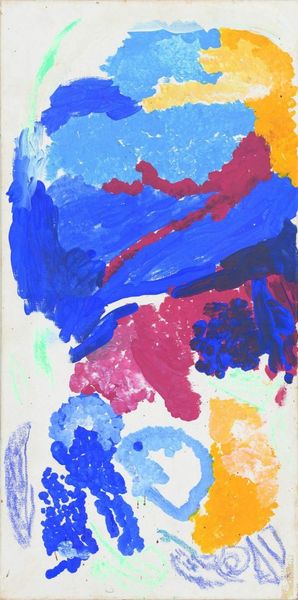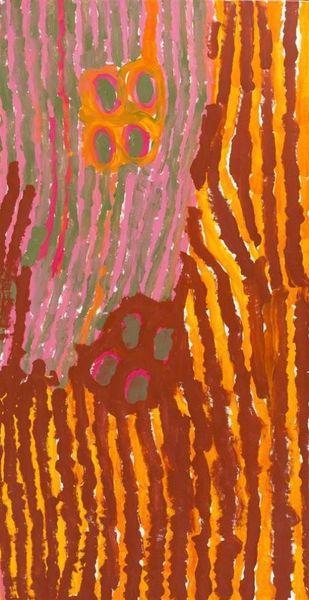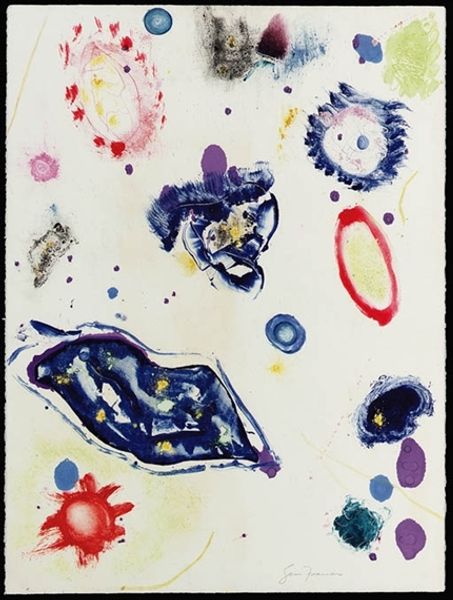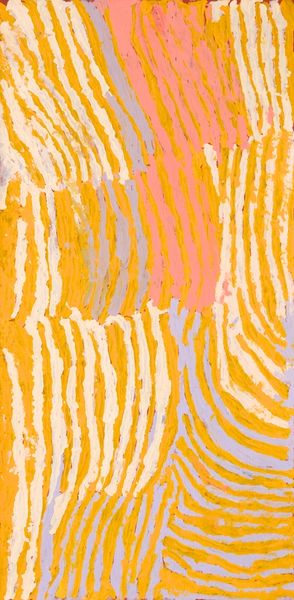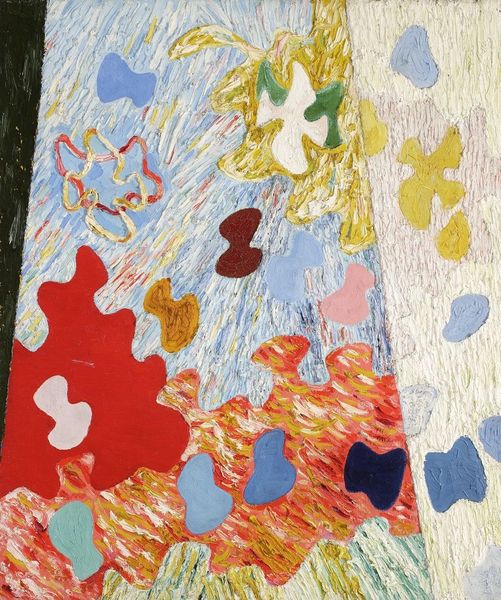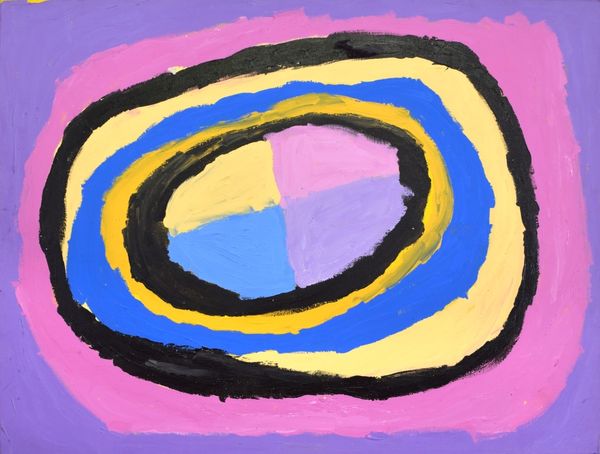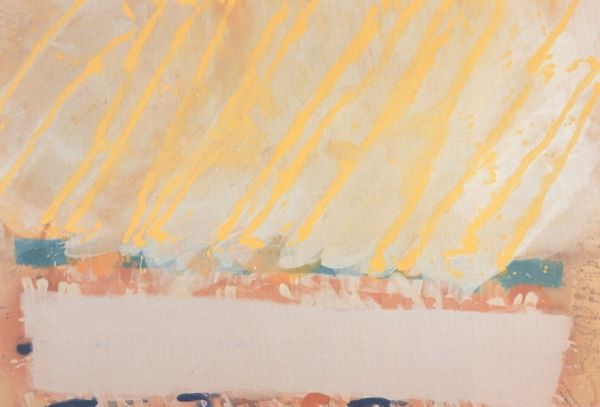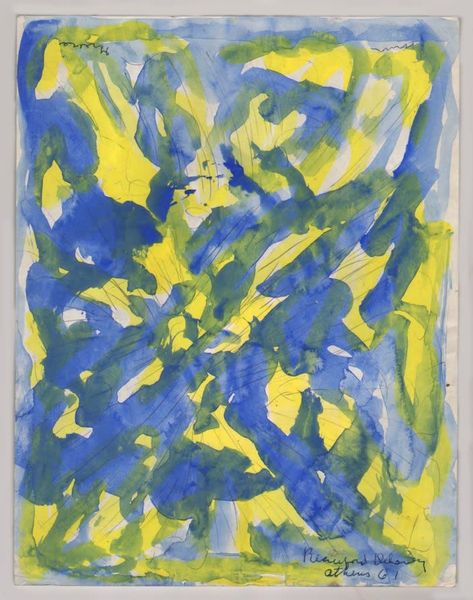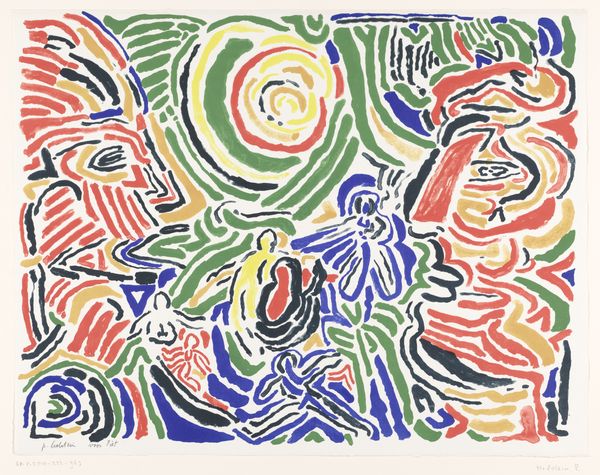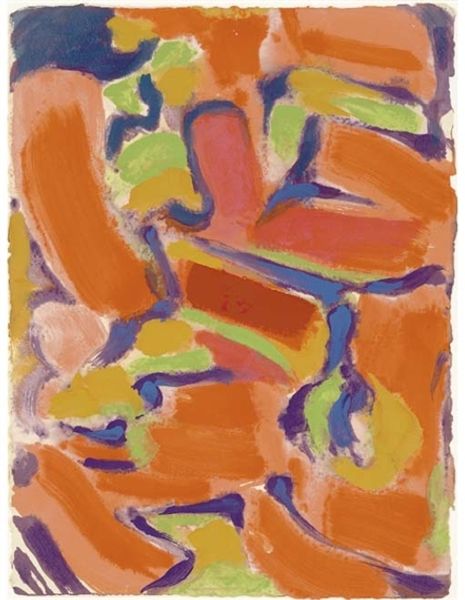
#
naturalistic pattern
#
random pattern
#
abstract pattern
#
organic pattern
#
flower pattern
#
pattern repetition
#
layered pattern
#
funky pattern
#
pattern in nature
#
combined pattern
Copyright: Makinti Napanangka,Fair Use
Curator: Immediately, I'm getting this strong sense of grounded energy—the weight and joy of community radiating from the canvas. Editor: Indeed. What we have here is “Women’s Ceremony,” a painting rendered in 2010 by the celebrated Indigenous Australian artist Makinti Napanangka. Curator: The linear composition, those pastel shades. It reminds me of riverbeds after a storm; or layers of meaning gradually being revealed in ritual. Do you agree? Editor: Yes, it certainly holds those impressions, but through the framework of Napanangka’s cultural practice. This work can be seen as embodying the lived experience and collective memory of Indigenous women. The patterns—seemingly abstract—encode sacred narratives. Curator: Absolutely, narratives! You sense how those forms echo ancestral footprints, while those colors are connected to country and its symbolic power? Editor: Without question. Consider, too, how this painting resists Western notions of representation. Instead, it’s invoking Indigenous mapping systems, connecting physical space to spiritual understanding. Curator: It flips everything on its head, doesn’t it? Makes you think about how even seemingly simple mark-making can carry so much weight. Like an unedited journal where knowledge is etched. The beauty resides precisely in those imperfections. Editor: Precisely! So often, we search for answers within fixed ideas, but Napanangka’s works require openness, encouraging viewers to confront the colonial gaze embedded within the study of art. Curator: Looking closer now, it truly resonates with its theme – there is movement, growth, life that ebbs and flows through it, like whispers of knowledge among community. I’ll not soon forget its patterns and its secrets. Editor: No, me neither. Perhaps its greatest lesson to us is that art can function not as something to simply see but something through which we can perceive.
Comments
No comments
Be the first to comment and join the conversation on the ultimate creative platform.
